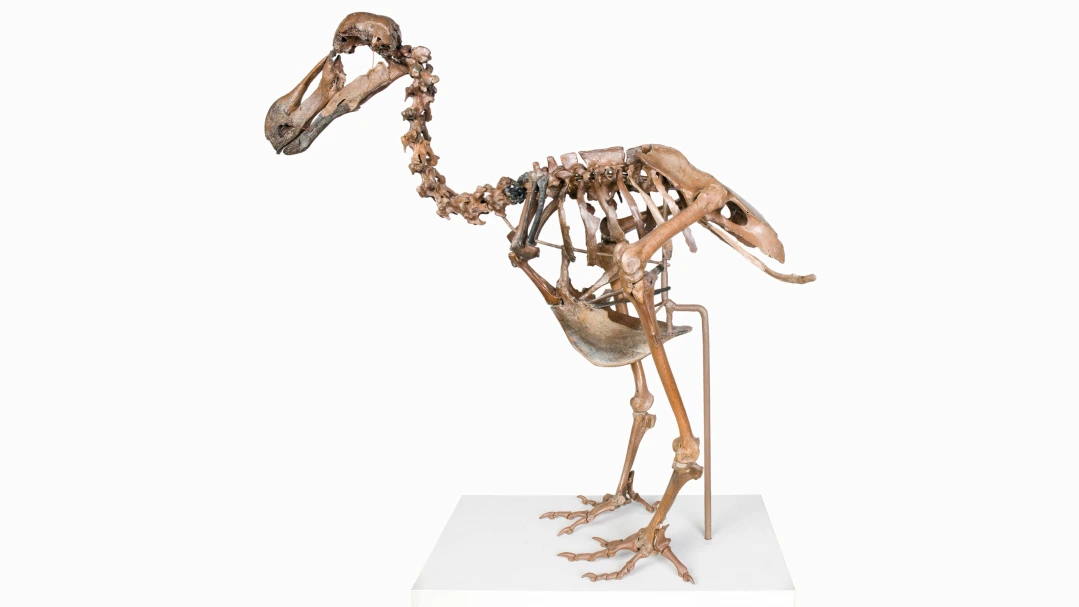A de-extinction company is trying to resurrect the dodo

The dodo bird was big, flightless, and pretty good eating. All that helps explain why it went extinct around 1662, just 150 years after European sailing ships found Mauritius, the island in the Indian Ocean where the bird once lived. Now a US biotechnology company says it plans to bring the dodo back into existence. It’s the third species picked by Colossal Biosciences, of Austin, Texas, for what it calls a process of technological “de-extinction.” The company is also working on using large-scale genome engineering to morph modern elephants back into woolly mammoths and resurrect the Tasmanian tiger.
The world's oldest hotel has been in business for 52 generations
Nishiyama Onsen Keiunkan in the Yamanashi Prefecture, Japan, is recognized as the world’s oldest hotel, inn, and possibly even business in general, catering to everyone from ancient samurai to modern tourists for over a thousand years. Originally established in 705 CE, the traditional “onsen” or “hot spring” was the brainchild of the son of the reigning emperor’s aid. The natural hot springs in the area allowed for the creation of a number of healing baths that drew visitors, including a number of samurai and famed shogun, giving the spa a bit more notoriety still. 52 different generations of descendants have cared for and operated the inn, growing the space and modernizing it slowly.

The master forger who helped thousands of Jews escape Nazi Germany
Julien Keller was the nom de guerre of Adolfo Kaminsky, who died in Paris last month aged 97. It was largely thanks to him that the German-occupied zone of wartime France was flooded with false documents. The Occupation authorities were on his trail, but they never suspected that the forger they were after was a teenager. Kaminsky worked out of a laboratory on the rue des Saints-Pères, disguised as an artist’s studio. Housed in a tiny attic, it belonged to the ‘6th’, a secret section of the General Union of Israelites of France which set out to undermine its parent organisation, resisting the Occupation and forging links with various Resistance groups. Over the course of the war, the 6th helped to save as many as ten thousand Jews from deportation.

The brief but wonderful life of Little Leo
When Leo Babler was born with a rare and deadly genetic disorder, his parents reshaped their lives, moving to the mountains, building out an adventure van, and making sure their son experienced the most beautiful wild places in the country during the time they had. His mother writes: "RCDP drastically affects the musculoskeletal, nervous, and respiratory systems. Leo would never walk or talk. He would have to be fed through a gastrointestinal tube (G-tube). His immune system was compromised, which meant he would be acutely susceptible to illness. Seizures could be expected as he got older. Experts said Leo would live between one and three years—five if we were lucky."

The Great Gatsby of gold took their millions and then disappeared
From the outside, Tyler Gallagher had it all: a $3.5 million house in Beverly Hills, two cars, a gorgeous wife, a flourishing business, and one of the hottest esports teams in the country. A high-school dropout who lived in a homeless shelter at age 16, Gallagher told anyone who would listen about how he took $5,000 and turned it into a successful company investing in precious metals. Within a decade, he claimed to have done nearly $1 billion in investments. According to its website, the company had offices in Los Angeles, London, and Dubai, and was the first company licensed to sell cryptocurrency in the Middle East. And then one day last October, Tyler Gallagher—and his gold—disappeared.

Neanderthal study shows they were more than just primitive cave dwellers
Neanderthals in present-day Portugal harvested sea creatures more than 90,000 years ago and used cooking methods that would give them “meaningful nutritional benefits”, reveal the findings of a new study. The research, published in the journal Frontiers in Environmental Archaeology, analysed prehistoric deposits of shells and bones unearthed in a cave just south of present-day Lisbon. The findings from the study have provided further proof that the ancient human ancestors were more than just cave dwellers, according to scientists, including Mariana Nabais from the Catalan Institute of Human Paleoecology and Social Evolution.

The mating dance of an ostrich
The mating dance of an ostrich
— Science girl (@gunsnrosesgirl3) February 11, 2023
📹 IG bragamarconi
pic.twitter.com/bxkv1ocJ5v



